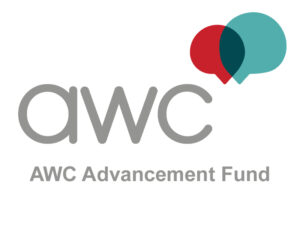
The actress Jennifer Lawrence recently wrote about a disheartening experience she had expressing an opinion to a man who worked for her (versus the other way around):
“A few weeks ago at work, I spoke my mind and gave my opinion in a clear and no-[BS] way; no aggression, just blunt. The man…said, ‘Whoa! We’re all on the same team here!’ As if I was yelling at him. I was so shocked because nothing that I said was personal, offensive, or to be honest, wrong. All I hear and see all day are men speaking their opinions, and I give mine in the same exact manner, and you would have thought I had said something offensive.”
Research informs us that even a competent woman like Ms. Lawrence, who is strong willed and assertive, can turn people off because she is blunt and tells it like it is. Even executive women find themselves compromising their content and being indirect because they want to avoid a negative response. In this case, the speaker is more concerned about how the message will be received rather than with the content. The result? To avoid being seen as “bragging” about what she knows, the speaker apologizes for challenging the status quo. She softens her opinion because she worries about hurting someone’s feelings. She qualifies her key point, with a preface or a prologue, as in, “I’m not sure this is important, but…”
Have you bitten your tongue when you wanted to confront a statement erroneously presented as “fact” that was in fact gossip, or even worse, “fake news”? To make this point, Alexandra Petri of the Washington Post wrote an amusing article about how “Women in a Meeting” use different language than men do, often using more words and a roundabout way of saying things to make sure they aren’t seen as having an edge. Petri rephrases famous quotes by men as they might have been said by a woman trying to avoid being seen as bossy or threatening. For example, instead of forcefully asserting “Mr. Gorbachev, tear down this wall!” as said by Ronald Regan, a woman might say:
“I’m sorry, Mikhail, if I could? Didn’t mean to cut you off there. Can we agree that this wall maybe isn’t quite doing what it should be doing? Just looking at everything everyone’s been saying, it seems like we could consider removing it. Possibly. I don’t know, what does the room feel?”
The quote that rolls off my tongue is what FDR said at his First Inaugural Address to inspire Americans to find courage and to remain tenacious: “The only thing we have to fear is fear itself.” Alas, according to the Washington Post article, a woman might have said this famous line with, “I have to say — I’m sorry — I have to say this. I don’t think we should be as scared of non-fear things as maybe we are? If that makes sense? Sorry, I feel like I’m rambling.”
Note that the statement is lengthier and less clear. What’s her point, I wonder? The paraphrased quotes in the Washington Post article aren’t just amusing, they make a point. History books are full of pithy inspirational quotes by men but the landscape is definitely changing for the better, albeit slowly. Inspirational quotes by articulate and brilliant women of diverse backgrounds are being captured in media outlets such as Forbes, USA Today, the Huffington Post and the BrainyQuote website. Author Erica Jong said, “When you don’t risk anything, you risk even more.” She might have been referring to the ways women muzzle themselves. Along those lines, Sheryl Sandberg paraphrases the famous Nike quote, “Just do it”, by stating that “Done is better than perfect.”
Here are some tips for women expressing themselves in meetings
- Don’t apologize for expressing an opinion, challenging what other people think, or questioning the established assumptions about how things ought to be.
- Be succinct, straightforward and direct.
- Land on your great phrase at the beginning or end of the “paragraph”
- Get to the point without a hedge, apology, or preface.
- Be yourself and make your point simply in a way that everyone will understand.
- Lift people up with a memorable phrase that will inspire them to be their best.
If you don’t share your big idea, who will? Women’s fresh ideas for solving age-old problems are worth repeating. You’ll be making history when you are quoted for posterity.
About the Author

Lois Phillips, PhD wrote her dissertation on the subject of gender and rhetoric and how to teach women to be more effective. She was the primary author of “Women Seen and Heard: Lessons Learned from Successful Speakers” with Anita Perez Ferguson, PhD based on interviews with executives which provides a range of strategies they shared to develop leadership presence. She is a keynote conference speaker, provides coaching and does speechwriting for executives facing Boards, conference audiences, and the press, and several blog posts have been published as Op Ed pieces. Lois is a not only a member of the Santa Barbara chapter, but also the founder.


1 thought on “Women in Meetings MS-represented: Your Quotability Quotient”
With thanks! Valuable information!